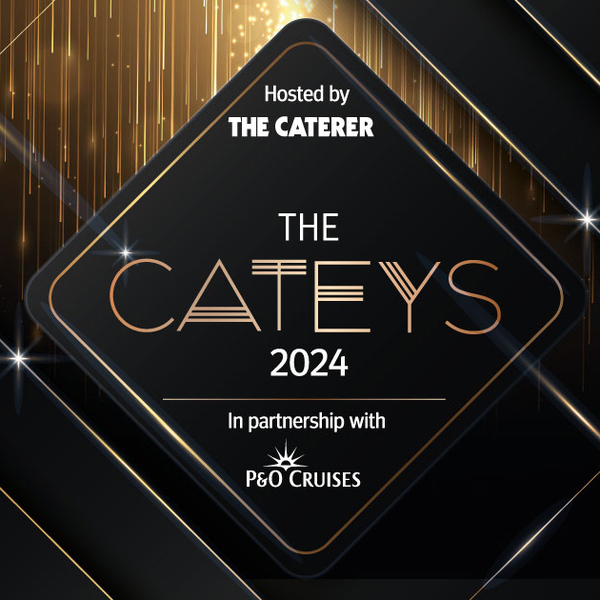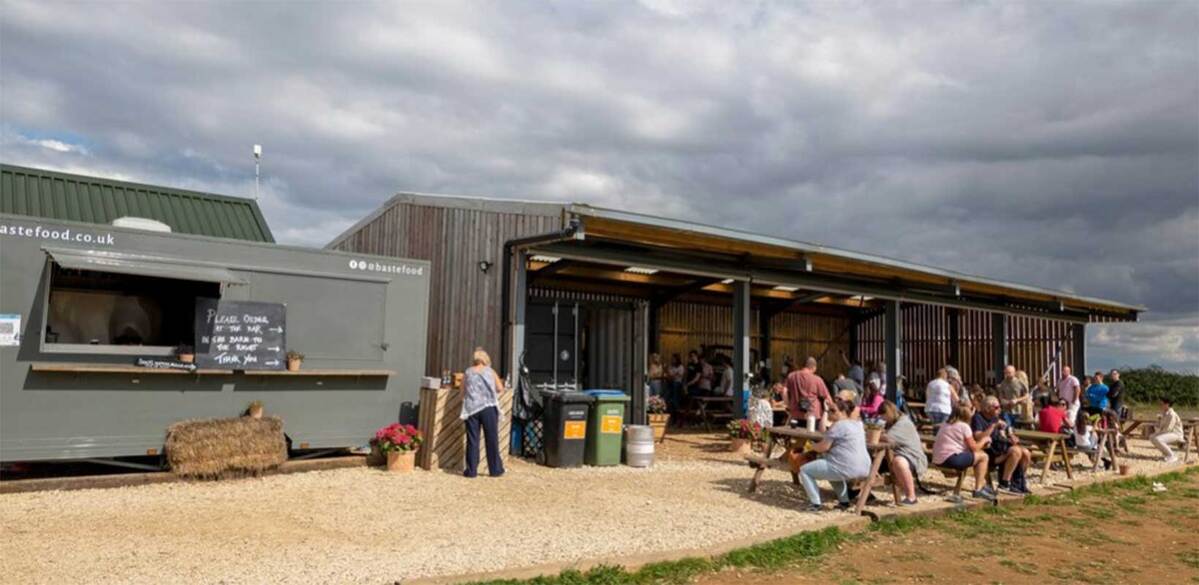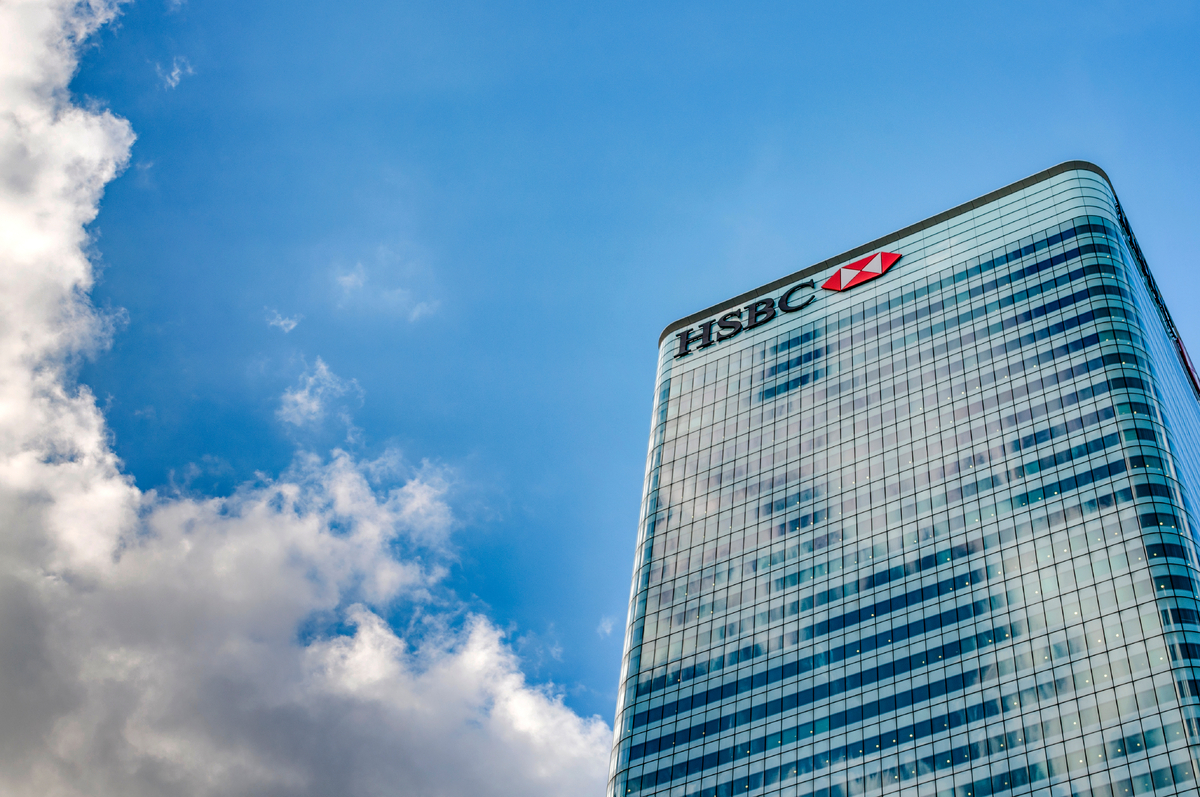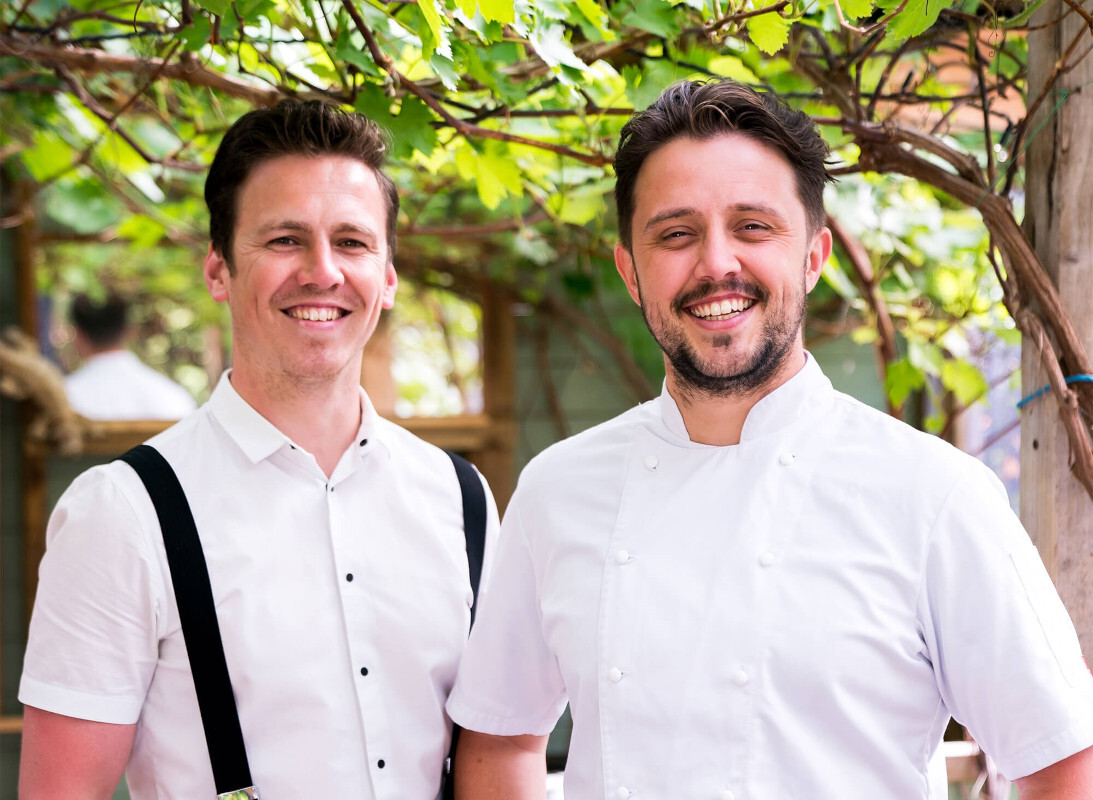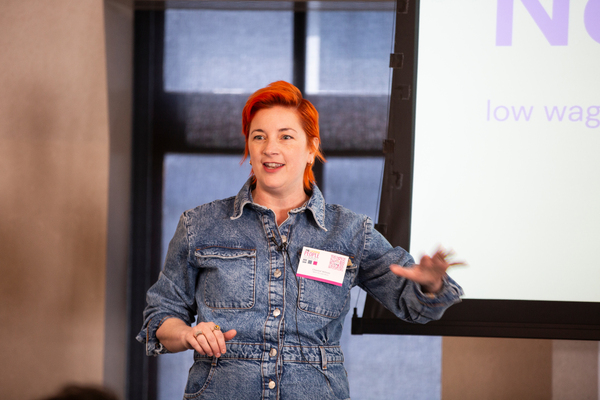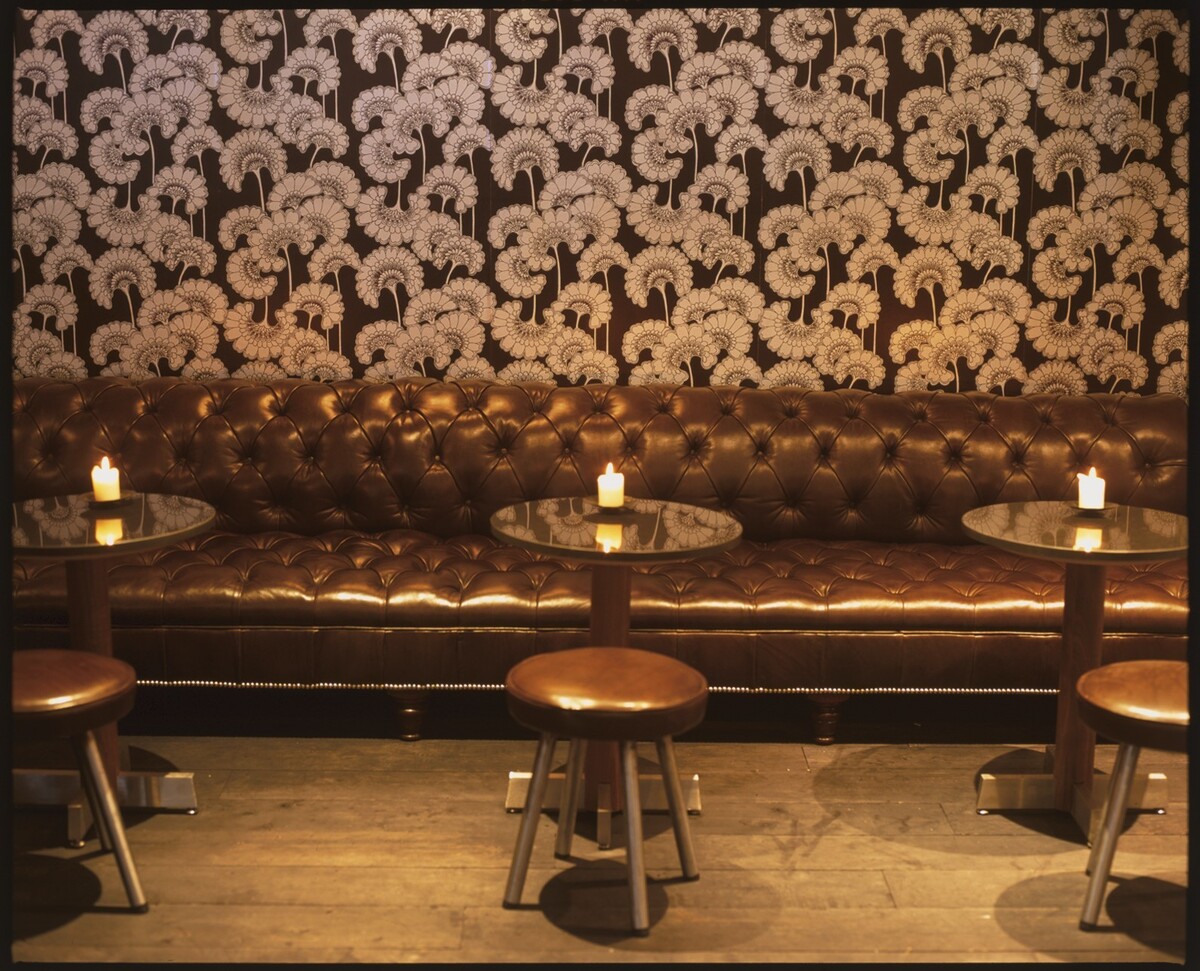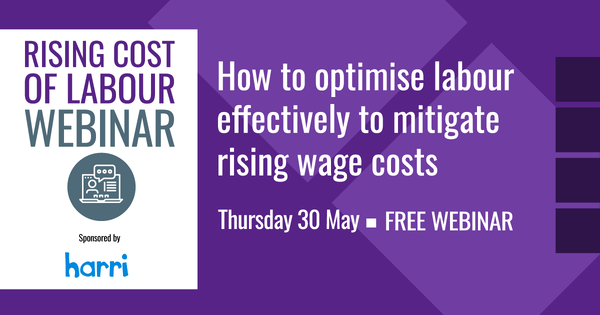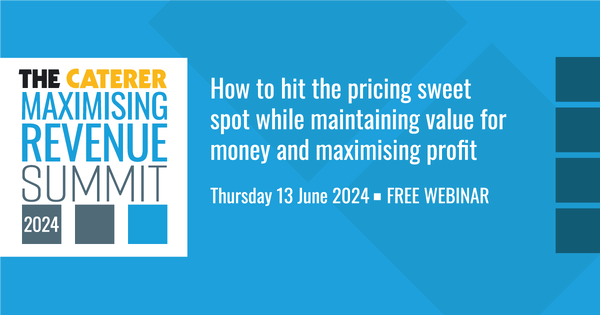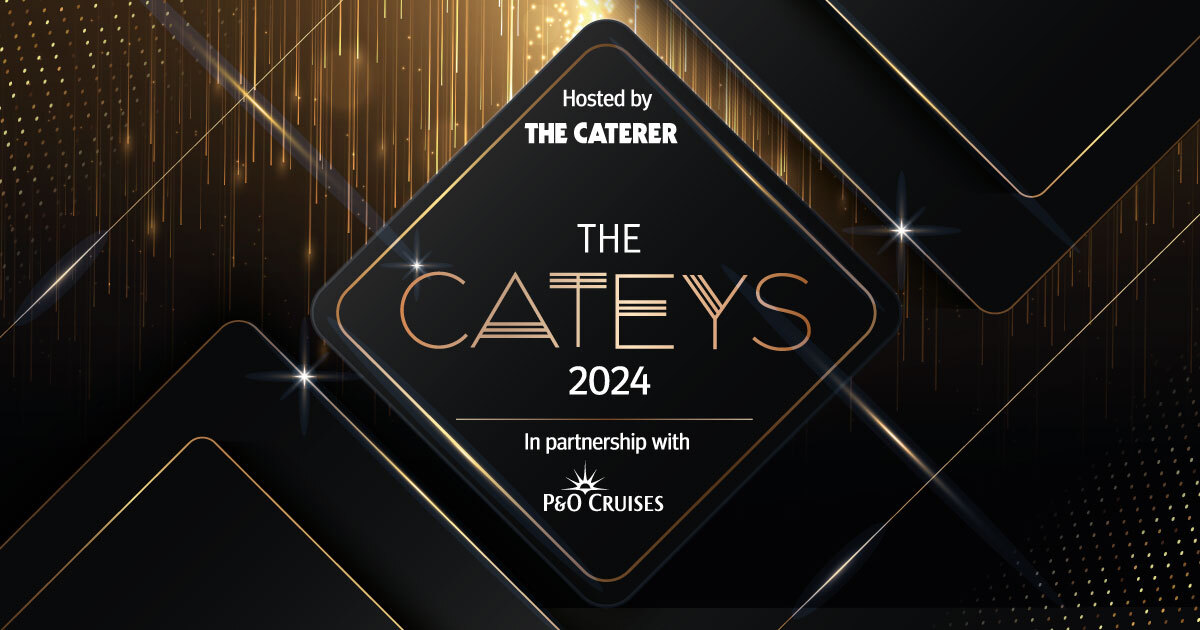To have and to hold
If there's anybody out there who doesn't think it's vital to retain their contracts, let us know if you're making any money. There are, of course, times when parting company is the only sane option - check out Sodexho axing 20 underperforming contracts earlier this year - but on the whole keeping your business from the claws of competitors is what contract catering is all about.
At the sharp end, that might even mean looking after old clients at the expense of finding new ones.
"Our business is all about business-retention - not growing," says William Baxter, who set up BaxterSmith three years ago with Mike Smith. "Obviously, you've got to grow, but all our energy and procedures and soul-searching is done to maintain our existing clients. The client is king."
Rick Holroyd agrees. He and partner Nick Howe sacrificed growth when they launched Holroyd Howe six years ago, but they believe that making contract retention central to their business plan has, in fact, attracted clients. They now have 54 contracts.
"We want contracts for life," Holroyd explains. "As an independent company, contract retention is important. You get a good reputation, so in the end you do grow."
There's no consensus as to the natural life of a contract. Last year, for instance, Compass lost Cambridge University Press to BaxterSmith after a whopping 37 years. Most consultants agree, however, there's a dangerous period at between five to seven years when clients might think about going out to tender to test the market. The key, of course, is making sure they don't, because by then it's too late.
"If they felt comfortable, why change? It's a lot of hassle," points out Harry Gadsden, managing director of Catering Partnership.
Consultant Adrian Stokes of Adrian Stokes Associates is even more blunt: "On the business and industry side, if a rolling contract has been put out to tender, the [caterer has] screwed up already so they might as well back off."
Some caterers do just that if they know the game's up. Chris Stern, of Stern Consultancy Group, says he knows of a company that recently gave up a contract rather than go back into the tender process. "I think they'd been uncompetitive financially and they didn't think they stood a chance," he says.
Tellingly, the same company then waived the management fee for a new client in the first year. "Caterers are generally very anxious to keep contracts," Stern remarks. "Success breeds success and to lose a contract sends out messages to the market."
Nowadays, in fact, there's no reason why caterers shouldn't hold on to contracts for life. As Stokes points out "Years ago, what a caterer offered at the beginning was the same as what they offered at the end and clients just got bored. Now, the caterer is conscious of developing the brand to satisfy the client's lust for different things," he says.
So the question is: how do you go about keeping the client interested at the right price? Baxter, who is an old hand at building up companies - after all, he co-ran Baxter & Platts for nine years before selling it on to Compass - reckons that the maximum number of contracts an area manager should look after is about 10-12. This means they can spend time understanding the needs of each contract and addressing any problems before they become an issue. It's also crucial that the sales team has the autonomy to get on with the selling side separately.
"It's all about not taking your eye off the ball," he says "The onus is always on you to demonstrate best practice - that's the knack."
Holroyd adds that it's imperative to make sure the client never considers tendering the business. To this end, Holroyd Howe's operations directors hold formal reviews of each contract and map out a business plan six to nine months ahead. This plan is then evolved every three months.
"In the past 12 to 18 months it has been very tough for business and industry clients," he says. "Our role is to make sure the catering changes in line with their core business."
If, for example, a client is making redundancies, Holroyd's team quashes the client's temptation to put the catering out to tender by getting in first and suggesting how costs could be cut.
But doesn't this mean they get a reduced fee? Holroyd says not. He explains that in a contract that turns over, say, £500,000, he could save the client £100,000, through reducing the service and taking a lower subsidy. He claims the client is still happy for the caterer to take its £20,000 fee because "they need us more. We are selling our professional advice."
Certainly price and even capital investment are driving factors in winning and retaining contracts. Gadsden, who set up Catering Partnership in 1987 and now has 62 contracts, says one of the longest contracts his company has held is at PZ Cussons (maker of Imperial Leather soap). The relationship started 12 years ago with a site in Nottingham and has grown to include Manchester and Stockport. The contract to feed 1,500 staff is now worth £500,000 and has been renewed for a further five years. He reckons he has kept it by getting to understand how the client works and by giving them support.
"We need to understand the client's requirements and set a price for that level of service. We need to be competitive with costings and look at driving deals with suppliers," Gadsden explains.
He's also aware that some contract caterers lose contracts because they allow the quality of service they are providing to decline. His advice is not to cut corners with staff: they need to be well trained and well paid.
But, more than all that, Gadsden believes the continued success of a contract boils down to one thing - personality. He explains that his company has only ever lost contracts for one of two reasons - either because of site closures, or, more significantly, where the personal bond has been broken by a change in management. He cites Tarmac, a £350,000-a-year contract to feed 150 people, which he lost on price, but which came back a year or two later because the client realised the value of the trust they had built up.
And trust, Gadsden reckons, is vital. He says it's important to be frank with clients - for instance, explain how a cut in costs will affect service - so they know they can trust you.
"It's about people and keeping close," Gadsden says. "Investment is not a major factor, although it helps to get the contract initially."
There's a perception that small- and medium-sized contractors are at an advantage in forging close links with a client and that the big boys have more at stake if they lose a contract. "It's a mature market," Gadsden observes. "They must be worried about maintaining market share."
Are they? Tim West, chief executive, at Avenance, which has 600 contracts, turns that argument around. "You could look at it the other way and say if a company has 600 contracts and loses three it has only lost 0.5% but if it has 20 and loses three, that's 15% of business."
West isn't so sure it's crucial for him to be too close to a client, either: "Relationships are key but you can overdo them. It's more important to be available without restricting the [site] managers. We like to empower our staff rather than have a director popping in every five minutes. I don't know what small companies do with effectively three or four operations directors running 20 contracts."
He agrees with everyone on one point, however. "Lesson number one for any operations director is don't lose a contract," says West. "You don't want to lose business full stop, but it's very competitive out there at the moment."
Consultants' corner
Clients may well be king, but there are times when it's better to back out of a contract. Adrian Stokes of Adrian Stokes Associates thinks you should be brave enough to say "We've done the best we can and we can't afford to do it at a lower price."
He does, however, believe that the larger contractors are more vulnerable to pressure from the client. "Large contract caterers have to do their level best to retain contracts even at a reduced margin because they need to retain market share and their reputation - they don't like to see their competitors take one of their contracts."
Chris Stern of Stern Consultancy Group adds that this has been a wake-up call for the big boys. "The days of the contractor earning more under the counter are gone. You tend not to find [the big caterers] playing games any more."
So with price now driven down, what does the client look for before settling a contract? "The wise client sees that it costs X to run a site and looks at the added value a caterer can give. Price isn't a big deal. Personality has a lot to do with it," says Stern. "I suspect that smaller contractors don't lose contracts as much as the bigger ones."
The smaller caterers seem to be benefiting in other ways, too. He reckons clients are much more savvy nowadays. They understand the market and are more confident about using small or quirky caterers in place of the more established names.
Public sector contracts face different issues. Vic Laws of AVL Consultancy says that whereas private sector contracts can be easily extended, the public sector is bound by EC laws.
However, he thinks that when a caterer is doing a good job, the tendering process isn't a threat: "The big thing in the public sector is benchmarking, so [the client] is inclined to keep with a good contractor," says Laws. "It works well the way it is because you are dealing with the public purse."
He says the tendering process in the private sector is much more of a threat because it is all about market testing. "As soon as a private-sector client goes to tender the caterer will lose it because it should never have got that far," says Laws.
Top tips…
…on keeping that contract
- No more than 10-12 contracts per area manager
- Keep in touch personally
- Ensure that there is an open, frank dialogue between you and the client
- Set up formal review systems, map out a business plan with the client and review every three months
- Make sure the client never considers going to tender - anticipate their financial problems and discuss ways to reduce costs in catering
- Clients today understand the market so ensure you are giving them the best service for the price
What the Client wants
Trust - or rather lack of it - is one of the key triggers that would make Catering Partnership's client Dave Marshall look for a new caterer. The facilities support and procurement manager at Norwich & Peterborough Building Society says there have been times in the past when he has felt - rightly or wrongly - that he's "been fiddled" by caterers.
Marshall appointed Catering Partnership six years ago and admits that part of the company's initial attraction was that it reduced the subsidy he pays by £20,000 to £70,000 a year. What has kept him interested, however, is that they are open and upfront.
"From day one I said, ‘Let's sit down and talk about problems." I don't want them hidden away and I don't want you sorting them out in the background'. And that's what they have done."
Catering Partnership's managing director, Harry Gadsden, visits him three or four times a year to discuss the bigger picture and other senior colleagues visit regularly to discuss finances and figures. Marshall insisted that the contract includes a bonus incentive. The building society pays the caterer 50% of any savings they make, and the caterer in turn has to pay 50% of that to the staff.
"They've only once been over budget," says Marshall, who says that because of the good communication lines he understood why and so a penalty was never enforced. "We talk a lot and work together. We talk business but also have a laugh. It's a personal/professional relationship."
